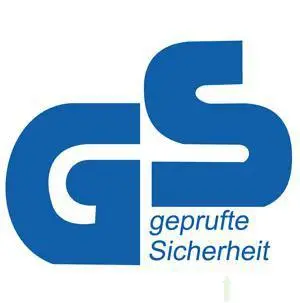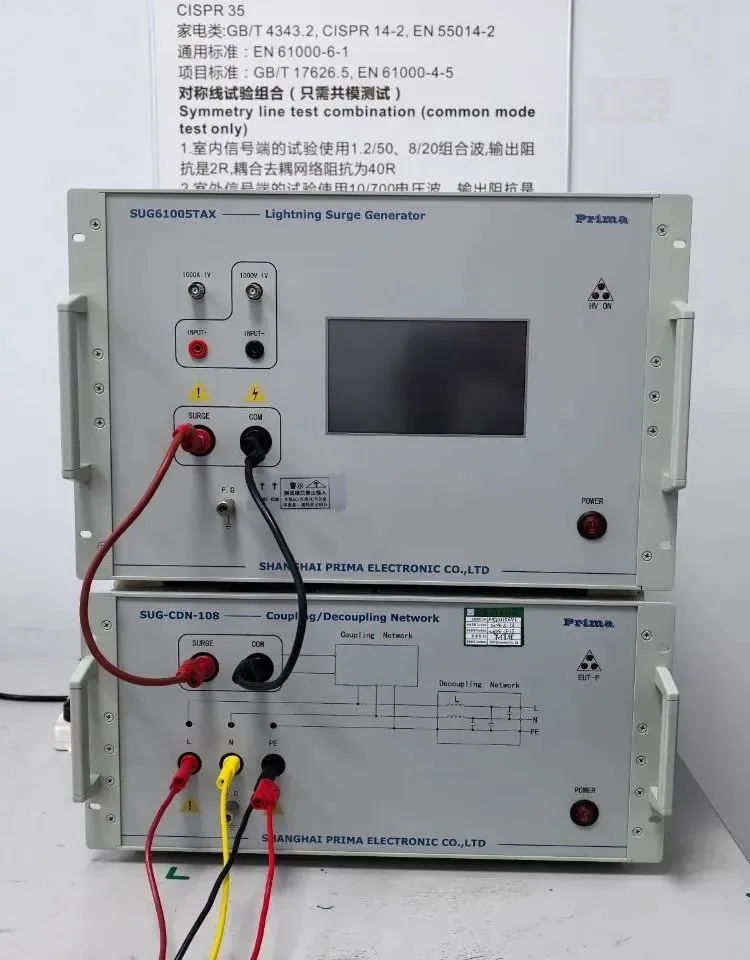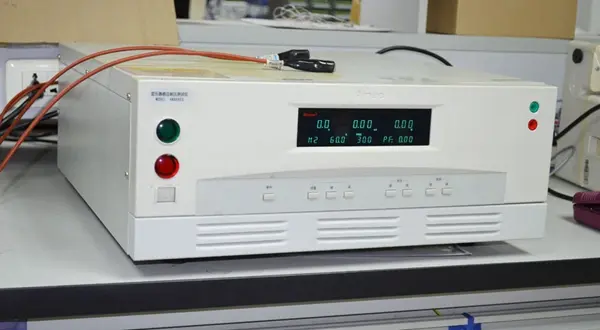
What is the German GS Certification?
GS stands for "geprüfte Sicherheit," meaning "safety tested" in German. The gs mark is a voluntary safety certification mark in Germany that is highly valued by consumers. Many products, such as household appliances, lighting, audio-visual equipment, communication devices, office equipment, power tools, electronic toys, and measuring instruments, face significant challenges in being sold in Germany or nearby regions without the GS mark. For companies, gs certification is indispensable for business growth and market expansion.
GS Certification Mark

Products CoveRED by GS Certification
- Household appliances: Vacuum cleaners, washing machines, air purifiers, electric kettles, kitchen tools, etc.
- Household machinery.
- Sports and recreational equipment.
- Home electronic devices: Audio-visual equipment.
- Electrical and electronic office equipment: Copiers, fax machines, shredders, computers, printers, etc.
- Industrial machinery and laboratory testing equipment.
- Other safety-related products: Bicycles, helmets, ladders, furniture, etc.
Documentation Required for GS Certification
1. Completed application form.
2. A list of critical components (including certificates and specifications).
3. Product nameplate in German.
4. Circuit diagrams.
5. PCB layout diagrams (with actual dimensions).
6. Instruction manual in German.
7. 2-4 product samples.
8. Exploded view (assembly diagram).
GS Certification Process
1. Initial Meeting: The certifying body explains the certification process and relevant standards to the applicant’s product engineers and provides necessary forms (e.g., application forms).
2. Submission of Documentation: Applicants must submit required documents, such as assembly drawings, electrical schematics, material lists, usage or installation instructions, and explanations of model differences for series products.
3. Technical Meeting: After reviewing the documentation, the testing body or agency schedULes a meeting with the applicant's technical team.
4. Sample Testing: Testing is conducted according to applicable standards, either in the manufacturer’s lab or in a certified lab in any country.
5. Factory Inspection: GS certification includes safety-related checks of production facilities.
6. Issuance of the GS Certificate.
Factory Inspections for GS Certification
GS certification mandates safety-related checks at production facilities, followed by annual factory audits.
GS Certification Timeline
The standard processing time is 4-5 weeks. Expedited services are available for an additional fee.
GS Certification Standards
GS certification is based on the German Product Safety Act and uses the EU's unified EN standards or Germany's DIN industrial standards for testing. This voluntary certification is a widely recognized safety mark in the European market. Electrical product testing for GS certification follows applicable safety standards, similar to CE/LVD, but with additional requirements specific to Germany, which are stricter.
GS Certifying Bodies
1. German Certifying Bodies: Notable organizations in Germany authorized to issue GS certificates include TÜV and VDE.
2. Other Certifying Bodies: European institutions cooperating with Germany, such as ITS, SGS, KEMA, NEMKO, and DEMKO, are also authorized to issue GS certificates.
Differences Between GS and CE certification
- GS Certification is voluntary, while CE Certification is mandatory.
- GS certification is based on German safety regulations, while CE certification follows European EN standards.
- GS certification requires testing by an independent third-party organization authorized by the German government, while CE certification allows manufacturers to self-declare compliance, provided they have complete technical documentation, including test reports.
- GS certification requires annual fees and factory inspections, while CE certification does not.
- The GS mark is issued by authorized testing bodies, while ce compliance is declared by the manufacturer.
GS Testing Institutions
China’s JJR Laboratory is a professional third-party testing body and GS certification testing institution. With independent labs and a team of experienced GS certification engineers, JJR Laboratory offers comprehensive GS certification services. The company has mutual recognition agreements with multiple countries, and its reports or certificates comply with German testing standards, helping clients overcome export trade barriers.
Email:hello@jjrlab.com
Write your message here and send it to us
 RCM AS/NZS CISPR 32:2023 Testing for Power Adapte
RCM AS/NZS CISPR 32:2023 Testing for Power Adapte
 How to get Australia SAA Compliance?
How to get Australia SAA Compliance?
 Does Canada Require RoHS Compliance
Does Canada Require RoHS Compliance
 EU CE LVD, EMC, RoHS Directives Compliance Guide
EU CE LVD, EMC, RoHS Directives Compliance Guide
 Quick Guide to the CE-LVD Low Voltage Directive
Quick Guide to the CE-LVD Low Voltage Directive
 Global Certification Guide for Lithium Batteries
Global Certification Guide for Lithium Batteries
 Compliance of Amazon 18650 Lithium Battery Product
Compliance of Amazon 18650 Lithium Battery Product
 What is CE Certification and EU Authorized Represe
What is CE Certification and EU Authorized Represe
Leave us a message
24-hour online customer service at any time to respond, so that you worry!




